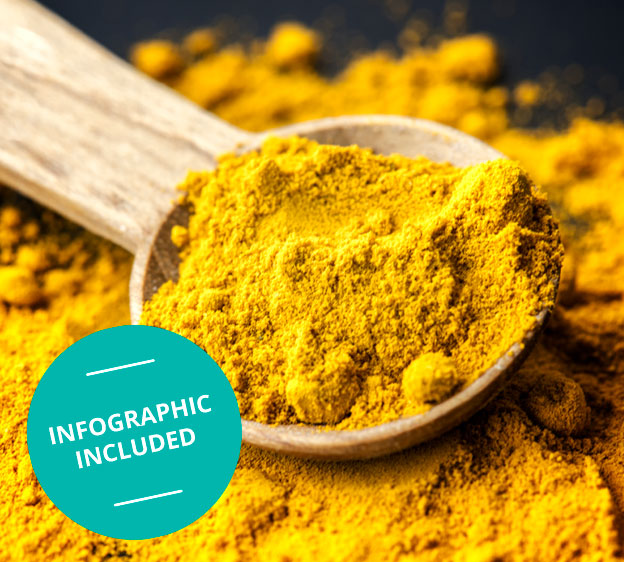
Over the past few years, turmeric has become an increasingly popular supplement for treating arthritis pain. The bright orange spice, derived from a root and commonly used in Indian and Middle Eastern cooking, is now offered in pills, drink mixes, juices and lattes. But does taking turmeric for arthritis really reduce pain and inflammation?
Read More: The Best Foods for Arthritis
The Science Behind Turmeric and Turmeric Extracts
The anti-inflammatory property of turmeric comes from the compound curcumin. However, the turmeric in your spice rack only has around 5% curcumin. So while cooking with that at every meal may make your food taste great, it’s unlikely to provide additional health benefits or help improve your arthritis on its own.
Multiple studies have shown that taking higher doses of curcumin in supplement form — around 1,000 milligrams (mg) per day — had similar pain relief effects to taking a prescription nonsteroidal anti-inflammatory drug (NSAID). Compared to a placebo, curcumin also reduced pain for patients. However, the studies have spanned limited amounts of time and involved small groups of patients who were screened for health conditions.
“While turmeric extracts and curcumin supplements might help some patients, there’s still no conclusive evidence that they are helpful or even safe for all arthritis patients,” says Dr. Vandit Sardana, a board-certified, fellowship-trained orthopedic surgeon at Beaufort Memorial Orthopaedic Specialists. “The evidence is still limited and inconsistent, so additional research is needed.”
Read More: Home Remedies for Knee Pain
What You Should Know Before Taking Turmeric
The supplement industry is not regulated by the Food and Drug Administration (FDA). That means you have no way of knowing what is actually in the bottle of turmeric/curcumin pills or powders you’re buying. It might not have the potency it claims to have, and there could be additional ingredients you don’t know about. In recent years there have been cases of imported turmeric with levels of lead high enough to cause lead poisoning in children — and the FDA has not yet created limits on how much lead can be allowed in any spices at all.
If you are experiencing joint pain, your best bet is to talk to a doctor about whether turmeric/curcumin supplements could help and, if so, what brands are considered safe. If you decide to take turmeric supplements, try combining them with black pepper and a healthy fat, such as olive oil to help your body absorb the compounds. And don’t neglect the power of a healthy lifestyle: An overall healthy diet and exercise routine can improve your joint health regardless of which supplements you take.

If arthritis pain interferes with your daily life, request an appointment with an orthopedic surgeon.

